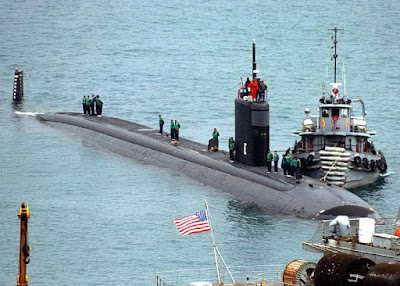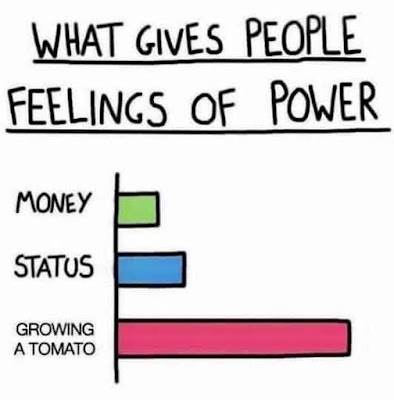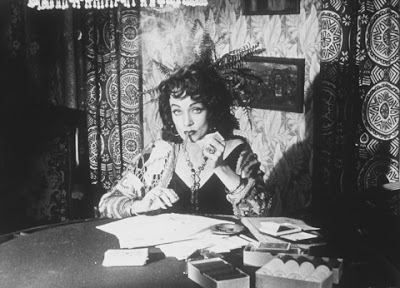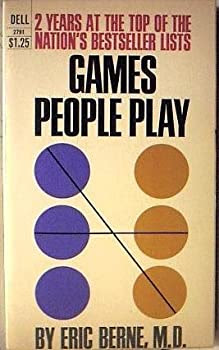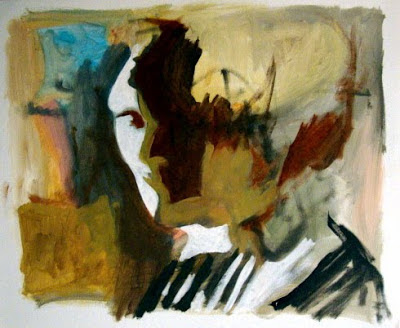The foundation of Bert's speech was his personal experience on a nuclear submarine near the end of the Cold War. What made the speech powerful though was the way he applied the insights from the first half of his speech to personal real life situations. Whether in school, the workplace or life in general, there's a sense in which we have all experienced some of these realities. It's important to know who your enemies are and who are your allies.
I asked Mr. Hursh, who is a teacher in the Ashland school district I believe, for permission to share his speech here.
Enemies and Allies
My mission today is twofold. First, enemy identification and second, relying on allied support.
In my time of service in the United States Navy, I experienced many days of stress. I served during the Cold War, underwater for 80 days in a submarine, living less than 100 feet from a nuclear reactor where I slept 10 feet above a nuclear missile.
I was in the Persian Gulf during Operation Desert Storm. I even had to share screen time with Sean Connery and Alec Baldwin, while they were filming The Hunt for Red October. (Check out this story about the USS Dallas.)
Two other missions that were especially stressful I can’t talk about. Well, I could, but you know how the saying goes. What I can say is that I spent some time in enemy territory, and can attest to the fear and anxiety that comes from being surrounded in hostile waters.
When this happened, it was my job during a battle station situation to plot on a chart the relative location of all the ships in the area. It is tricky to do when you cannot see any of them. I had to totally rely on our sonar men to identify them simply by listening to them. Every ship in the world has its own signature sound and it takes an expert to make that identification. Knowing where your enemy is, as any veteran will tell you, is very, very important. We could only identify our enemy by the sound it made.
My two brothers are also veterans as is our father. My younger brother, Robert, did multiple tours of duty to Iraq where it was his role to teach ethics to the local police force as well as doing security outings in Baghdad. Some circumstances were pretty tough with IEDs and other risks to fear. He was responsible for the safety of his unit and some dangerous times came to him. Afterward, and even now, he does not speak of some of those times. He does speak of his allies, his buddies who were there with him, his friends and family.
We all need allies, people who support us and have our backs. These are other veterans, family members, friends, neighbors…
Growing up as I did, I had enemies. I could identify them because I could hear them. They sounded like this;
--What did you do that for?
--Dummy, can’t you do anything right?
--You ‘re so stupid.
--Nobody cares.
--You want to try some of this? It will make you feel better
Sometimes it was my own inner voice:
--I hate this place.
--I don’t need this.
--I can’t do it.
--I don’t know what I am doing.
I knew this enemy and he was lying to me.
Fortunately, I had Allies to defend me and help me. I came to believe that God had placed people around me to rescue me. My grandparents, my social studies teacher and basketball coach Mr. Mike Jahn, my science teacher George Olson, people at my church. They all helped me identify and conquer those destructive enemies.
Some of you here might have the same lying enemy.
That enemy inside us who doesn't wear a uniform and is our hardest enemy to fight. He nags at you and tells you that you are not good enough. He says you have done bad things so now you are worthless, making you angry at everything and everyone, and you just don’t want to deal with it anymore.
My friends, you have allies! I know this because I am one of them.
Looking around, (at our local group of fellow Toastmasters) I find that my enemy is not here. What I see here are allies. They are friends, neighbors, teammates, brothers and sisters, school staff. Look around. Your enemy is not here. All around you are allies.
If we wrongly identify and consider them as hostile to us, the worst can happen. Now I have not been in an accident that is considered friendly fire, but I know that any soldier or sailor would say that bringing harm to an ally is a tragedy that is unimaginable, unthinkable.
In the Navy there is one honor that cannot be done alone to earn it. The Battle “E”. It signifies that your ship or unit was able to carry out Efficient and Excellent battle plans against the enemy. It is not an individual award. Every crew member must be at their best to earn this one.
We are on the same team!
Be an ally to someone like my sonar man. Help identify the unseen enemy. When the battle plan can be carried out, you can conquer that enemy.
* * * *
Thank you, Bert, for sharing these thoughts with our Toastmasters group and allowing me to reproduce them here for others to reflect on.
Toastmasters as an organization is nearly 100 years old. It's purpose is not simply to help people become better public speakers, but also to develop leaders. Our own Toastmasters Club 1523 meets on Thursday evenings, and guests are always warmly welcomed. In fact, with Zoom, if you live overseas you can still attend one of our meetings. Some of our members have attended other groups elsewhere in the world.
For more information, visit our club website.
Related Link: Before Going Into Battle We Must Know WWAUA
Photos
Top: USS San Juan. Photo by Paul Farley, public domain, courtesy US Navy
Next: USS Michigan. US Navy photo by Brian Norkell
Bottom: Submarine insignia known as The Dolphins, honoring the 105 officers and men who perished in the sinking of the US Argonaut.
